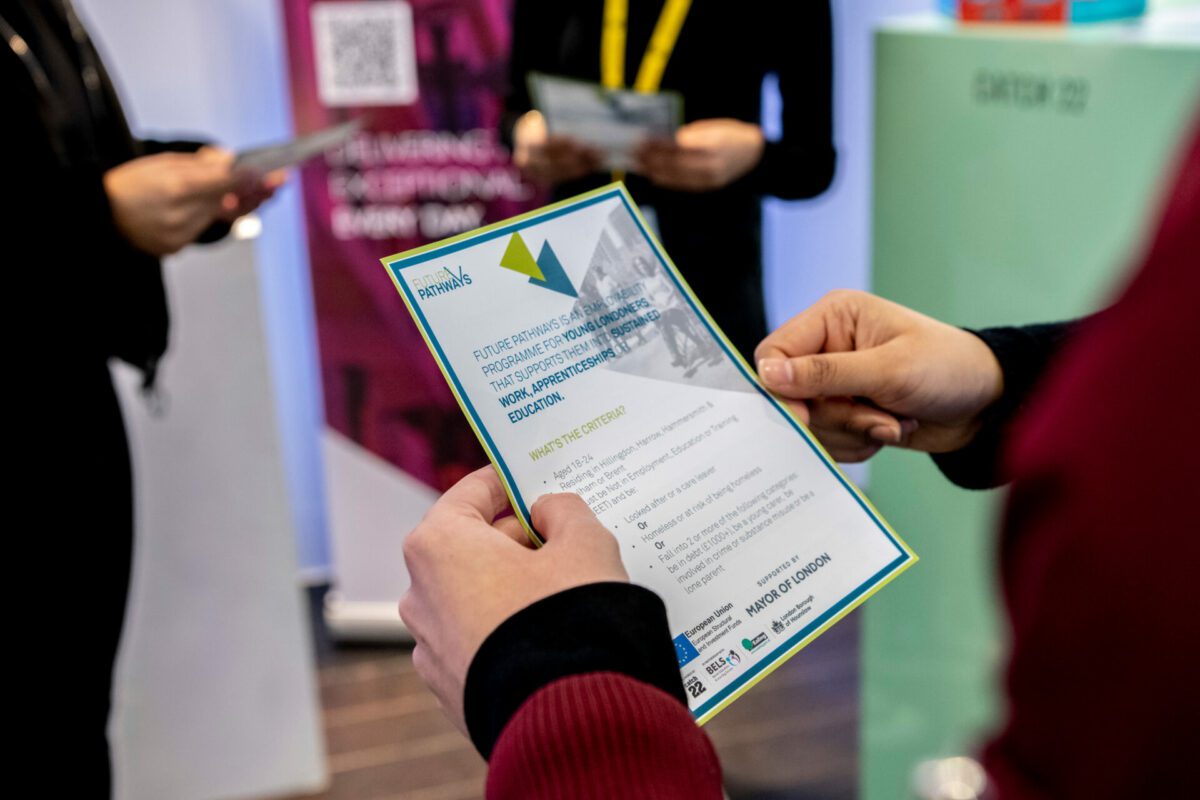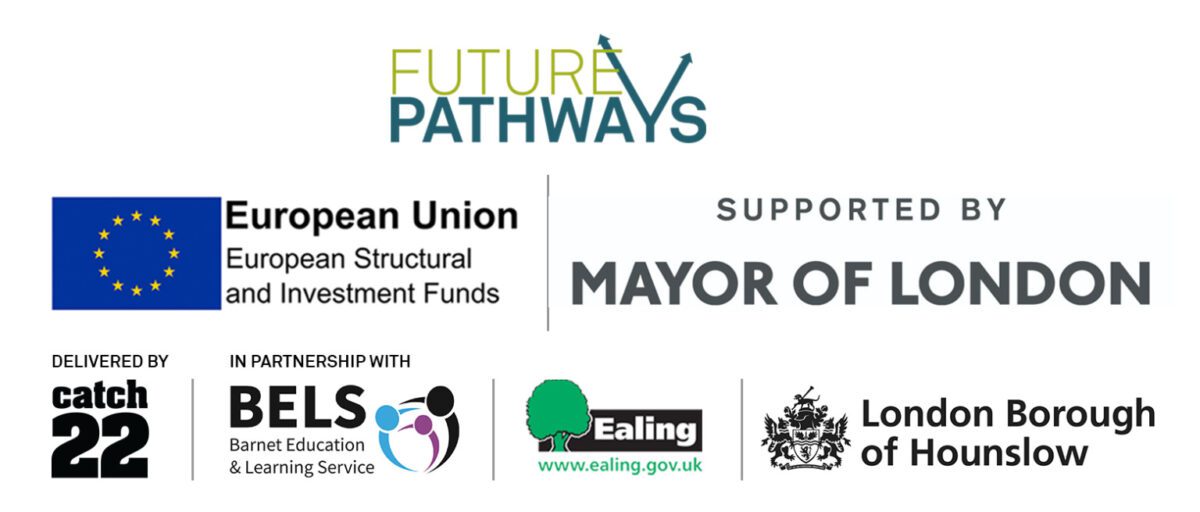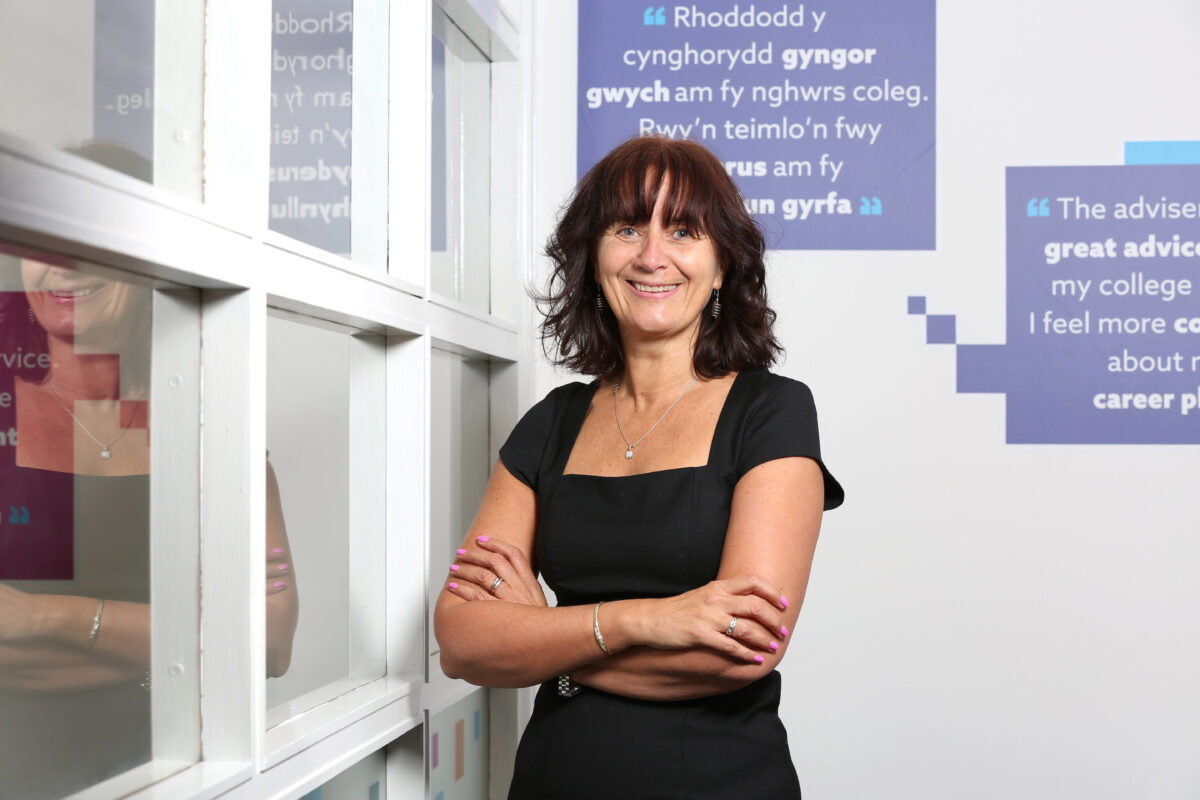Future Pathways

Employability Support for West London’s Young People
While the COVID-19 pandemic has presented many challenges, employability rates among young people continue to be a major concern. Unemployment rates have increased most significantly in London among individuals aged 16-24, who have seen it increase from 16% to 20%.
Young people who are NEET (Not in Education or Employment), are more susceptible to being approached for criminal activity, groomed into drug dealing and/or gang involvement. When taking a closer look at Hammersmith and Fulham borough, located in West London, the crime rate in 2021 was 112 per 1000 people.
For comparison, the London overall crime rate for the same time was 88 per 1000 people. Hammersmith and Fulham has a higher crime rate among all West London boroughs. Often these vulnerable young people are facing additional barriers such as being care leavers, having debt issues, or facing the risk of being homeless – putting them at higher risk of being exploited.
Future Pathways
To combat this crisis, the Future Pathways employability programme is reaching out to 16–24-year-olds, engaging them in sustained employment and education, making them more independent to live a healthy, safe, and fulfilled life.
The Future Pathways team of advisors has come across many young people who have been subjected to crime, and the issues they are facing. Their involvement in crime inevitably leads to challenges in the future, specifically moving away from a life of crime and being inspired for future opportunities.
Jack’s Story
Hammersmith and Fulham Council referred Jack*, a 21-year-old with a criminal record, to Future Pathways. As Jack was still on probation, it was essential to focus on his barriers first, before securing a job – such as dealing with the homelessness he was facing and substance misuse issues. Following an initial call with him, the Future Pathways advisor realised that, while Jack would also need assistance with finding a job, he was lacking in some basic digital skills.
To further develop his abilities, he was enrolled in various workshops alongside hollistic support. These included developing his skills in writing a CV and cover letter, improving his interview skills, and building his confidence and motivation. A crucial part of Future Pathways’ line of work is not only to empower clients but to teach them how to keep themselves motivated and committed. They are offered a wide range of support, taking into consideration how the individuals have struggled with stability throughout their lives. Future Pathways is not only supporting them with employment but also providing them with life skills, such as learning to manage their income and savings and sorting their tax and benefits.
Referral partner Priscilla Akata-Pore, a Senior Social Worker in Hammersmith and Fulham Youth Offending Service said:
“It’s key for them to have a worker who will not just give up on them at the first hurdle. A lot of our young people are used to people coming and going from their lives and they have come to expect the same from services and professionals. They may try to push you away just to confirm their belief that everyone leaves. This is why it’s vital to make them feel valued and let them know that you will not give it up on them.”
Get in touch
Future Pathways puts the needs of clients first, providing them with extensive well-rounded support into finding employment or education outcomes, on the way to creating a positive and meaningful impact in their lives.
If you are interested in working together with Future Pathways, helping young vulnerable people achieve sustained employment and education outcomes, please get in touch through their webpage.












Responses